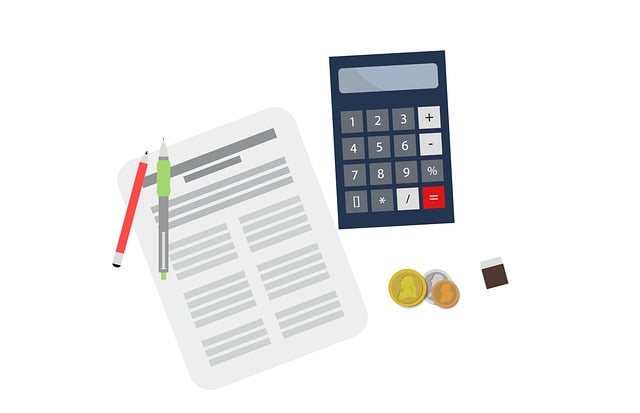Effective retirement planning is a multifaceted endeavor that extends beyond mere savings. A prudent approach encompasses leveraging tax-efficient investment strategies to safeguard and augment long-term wealth. This article delves into the critical intersection of personal finance and tax optimization, offering insights on harnessing tax benefits for entrepreneurs, optimizing year-end tax planning, and maximizing tax deductions through strategic investment choices. By understanding how to utilize tax-deferred investments and employ minimization techniques, individuals can significantly enhance their financial security in retirement.
- Leveraging Tax Benefits for Entrepreneurs: A Strategic Approach to Year-End Tax Planning
- Maximizing Tax Deductions: Effective Investment Strategies for Retirement Tax Planning
- Mastering Tax-Deferred Investments and Minimization Techniques for Long-Term Wealth Preservation
Leveraging Tax Benefits for Entrepreneurs: A Strategic Approach to Year-End Tax Planning

Entrepreneurs have a unique opportunity to leverage tax benefits throughout the year, particularly as year-end approaches. Strategic tax planning can significantly reduce the tax liability and enhance the financial health of a business. By carefully timing income and expenses, entrepreneurs can take full advantage of allowable deductions, thereby maximizing their tax savings. For instance, making contributions to a SEP IRA or a Solo 401(k) before year-end not only boosts retirement savings but also reduces taxable income. These tax-deferred investments are pivotal in retirement tax planning, allowing business owners to defer taxes on investment earnings until a later date, often after retirement when they may be in a lower tax bracket.
Moreover, entrepreneurs should consider the full spectrum of available tax minimization techniques. This includes identifying and utilizing deductions related to business operations, such as equipment purchases or renovations that can be accelerated into the current year. Additionally, exploring tax credit opportunities, like those for energy-efficient improvements or research and development, can further reduce tax obligations. By engaging in year-end tax planning with a focus on maximizing tax deductions, entrepreneurs can effectively shield their business income from excessive taxation while strategically positioning themselves for long-term financial security. This proactive approach to managing the tax implications of entrepreneurial ventures ensures that business owners retain more of their hard-earned profits, which can be reinvested into the business or allocated toward personal financial goals and retirement savings.
Maximizing Tax Deductions: Effective Investment Strategies for Retirement Tax Planning

Entrepreneurs stand to benefit significantly from strategic tax planning as they approach retirement. By leveraging tax benefits designed specifically for business owners, they can optimize their financial trajectory. Year-end tax planning is a critical component of this strategy; it involves reviewing investment decisions and financial activities made throughout the year to identify opportunities for maximizing tax deductions. This proactive approach ensures that entrepreneurs take full advantage of allowances and deductions, which can reduce current tax liabilities and increase net income available for reinvestment or personal use.
Incorporating tax-deferred investments into one’s portfolio is another pivotal step in retirement tax planning. These investment vehicles, such as traditional Individual Retirement Accounts (IRAs) and 401(k) plans, allow entrepreneurs to defer taxes on contributions and earnings until a later date, typically upon reaching retirement age. By delaying the recognition of income until withdrawal, individuals can preserve the compound growth of their investments, thereby enhancing their long-term wealth potential. Additionally, tax minimization techniques, such as converting traditional IRAs to Roth IRAs, can further streamline an entrepreneur’s tax strategy by potentially turning tax liabilities into tax-free income in retirement. These steps, when executed in conjunction with broader tax optimization strategies, not only protect but also actively grow one’s wealth over time, ensuring a more secure and comfortable retirement.
Mastering Tax-Deferred Investments and Minimization Techniques for Long-Term Wealth Preservation

Entrepreneurs can significantly benefit from leveraging tax-deferred investments as a cornerstone of their retirement planning strategy. These instruments allow for the accumulation of wealth on a tax-advantaged basis, deferring taxes until a later date when, ideally, an entrepreneur may be in a lower tax bracket. By contributing to tax-advantaged accounts such as IRAs, 401(k)s, or SEP IRAs, entrepreneurs can lock in current tax rates, safeguarding their hard-earned income from the erosive effects of inflation and higher future tax rates. Year-end tax planning is a pivotal time for businesses and individuals alike to maximize tax deductions and contributions to these accounts, optimizing their financial portfolio for the upcoming year. Strategic timing of investment decisions in conjunction with charitable giving can further enhance the potential tax benefits available to entrepreneurs.
Retirement tax planning extends beyond mere deferral; it encompasses a comprehensive approach to minimize taxes throughout one’s retirement years. This includes understanding which investments are most favorable within a retirement framework, as well as utilizing tax minimization techniques such as Roth conversions, where appropriate. By carefully selecting investment vehicles that offer tax-deferred growth potential, entrepreneurs can preserve their wealth and ensure its longevity. Additionally, staying abreast of changes in tax laws and regulations is crucial for entrepreneurs to continuously optimize their retirement investments. Proactive financial planning, coupled with year-round attention to tax strategies, positions individuals to not only retain more of their earnings but also to enjoy a more secure and comfortable retirement.
In conclusion, prudent retirement planning is a multifaceted endeavor that hinges on leveraging tax benefits for entrepreneurs and maximizing tax deductions through effective investment strategies. By mastering tax-deferred investments and employing strategic minimization techniques, individuals can safeguard their financial future against the eroding effects of taxes. Year-end tax planning plays a critical role in optimizing one’s tax position, ensuring that wealth not only endures but also flourishes over time. The key to success lies in the integration of these approaches within a comprehensive retirement tax planning framework, which can yield substantial rewards for one’s fiscal health and long-term prosperity.



